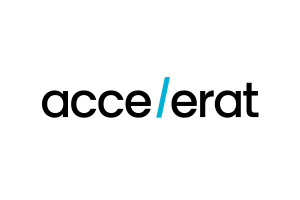Suddenly and unexpectedly
Robert Kraus is dead
Robert Kraus, the CEO and founder of Inova Semiconductors, passed away last week in Munich.
What he created is extraordinary: In 1999 he founded Inova Semiconductors in Munich with the vision of developing ICs for serial high-speed data transmission. The vision became reality: comparable success stories are rare in Europe. How does something like this succeed? Above all, with persistent work, tireless dedication, fun with technology, extensive competences in very different fields, but above all, fun in dealing with people.
Entrepreneurship was not something that came naturally to him from the start. After studying communications engineering, he started his career at Motorola in 1986, and from 1990 he was head of logic engineering in Europe. When the company was restructured, he had the idea to start his own business. Colleagues were quickly found who wanted to join him in the adventure of founding a chip company without their own fab.
But like every start-up, Inova also had to overcome lean times, during which Robert Kraus was able to demonstrate one of his many talents: Keeping a cool head in crises, not frantically changing strategies, but calmly continuing on the path he recognised as the right one - and motivating his team despite the difficulties. Giving up was not an option for him.
He was also able to get the key staff at the Bavarian Ministry of Economic Affairs enthusiastic about his project, which granted the start-up the funding without which it would hardly have got off the starting blocks.
Robert Kraus benefited from the fact that he was never just an engineer, but pursued many interests. During his studies, he worked as a journalist on the side. What remained with him from this time was a profound knowledge of the importance of public relations and how media work.
This became obvious when he announced the first breakthrough for Inova at a professionally conducted press conference in Munich in 2007: "BMW and Fujitsu set their sights on APIX," read the page 1 article in Markt&Technik. At that time, the tender start-up plant in Munich probably became known beyond the borders of insiders for the first time, even worldwide: In particular, the innovation-happy Asian car manufacturers became aware of Inova.
Now Inova really got going, a wave was building up: More semiconductor manufacturers and carmakers wanted to use this interface. An ecosystem and a de facto standard were created, and sales rose rapidly.
However, Robert Kraus and his team at Inova were far from satisfied with this success and things went from strength to strength: "IESELD" was presented at electronica 2016, at the same time as the associated ecosystem, the ISELED Alliance. Only two years later, the engineers implemented the idea of also integrating sensors and actuators into ISELED and presented the "ISELED Light and Sensor Network" (ILaS). Again, Asian companies were particularly receptive to bringing the new technology into their cars quickly, so that this region has since developed into an interesting sales market for Inova.
Despite this success story, the visionary Robert Kraus never lost his grip on the ground. He remained as modest as I had met him back in the early 2000s. I enjoyed interviewing him, got to understand his thinking better and better and a friendly relationship developed. We liked to meet for lunch at his favourite Italian restaurant in Munich, talked a lot about the industry - but by far not only. I admired his unpretentious straightforwardness, his perseverance, his sense of humour and his talent for sticking strictly to the stance that seemed right to him.
This was probably the prerequisite for not only surviving in the shark tank of the globally operating automotive industry and its suppliers, but also for achieving an unparalleled growth curve.
It is therefore all the more tragic that Robert Kraus was not able to enjoy the fruits of his 24-year marathon with Inova. He leaves behind a gap that is difficult to fill, not only at Inova, but also with his family and among his friends and acquaintances, as well as the entire electronics industry. We mourn the loss of a visionary who was able to turn his visions into reality with courage, foresight and a high degree of competence, and who leaves behind a significant life's work.







